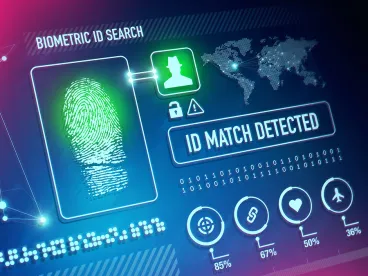With the flood of Illinois biometric privacy suits lodged against employers in recent months, and multiple biometric privacy suits against social media and other mobile platforms currently pending over the use of photo tagging functions, 2017 has been a busy year in this area. In a notable circuit court level ruling this week, the Second Circuit affirmed the dismissal of Illinois biometric privacy claims against a videogame maker related to a feature in the NBA 2K videogame series that allows users to scan their faces and create a personalized avatar for in-game play. (Santana v. Take-Two Interactive Software, Inc., No. 17-303 (2nd Cir. Nov. 21, 2017) (Summary Order)).
Although the court remanded the case to give plaintiffs leave to amend the complaint, the dismissal is still a resonant victory for Take-Two and demonstrates that the Article III standing requirements under Spokeo can be an important limitation on claims based on bare procedural violations of the notice and consent provisions of the Illinois Biometric Information Privacy Act, 740 Ill. Comp Stat. 14/1 (“BIPA”).
As discussed in our prior post on the lower court’s opinion, the Santana case concerns the MyPlayer feature in the NBA 2K15 and NBA 2K16 videogames, which allows users to scan their own faces to create personalized virtual basketball avatars that can be used during gameplay (including during multiplayer games, if the gamer so chooses). To create the avatars, the game platform’s cameras scan the user’s face and head from various angles and then convert this data into a virtual player that resembles the user.
To create a MyPlayer avatar, a gamer must first agree to the following terms, which are presented on the viewer’s television screen or monitor:
Your face scan will be visible to you and others you play with and may be recorded or screen captured during gameplay. By proceeding you agree and consent to such uses and other uses pursuant to the End User License Agreement. www.take2games.com/eula
The plaintiffs made no allegations that their faceprints were disseminated or used for any other purpose outside of the game (for which they gave consent), or that their biometric data was wrongfully accessed by hackers or other third parties. Rather, they contended that Take-Two failed to comply with various provisions of BIPA, such as providing written notice of its data retention policies regarding gamers’ faceprints and maintaining adequate data security.
Generally speaking, under BIPA an entity cannot collect, capture, purchase, or otherwise obtain a person’s “biometric identifier” or “biometric information,” unless it first:
(1) informs the subject in writing that a biometric identifier is being collected;
(2) informs the subject in writing of the specific purpose and length of term for which a biometric identifier or biometric information is being collected, stored, and used; and
(3) receives a written release executed by the subject.
Take-Two moved to dismiss for lack of Article III standing and for failure to state a cause of action under the statute. The district court granted the motion on both grounds and dismissed the action with prejudice. Plaintiffs appealed, and in a summary order, the Second Circuit affirmed on standing grounds and remanded with instructions to enter a dismissal without prejudice, granting plaintiffs leave to amend.
The court initially found that Take-Two’s alleged procedural violations of BIPA’s notice provisions failed to raise a material risk of harm that would give plaintiffs Article III standing. It concluded that Take-Two indisputably informed users that the MyPlayer feature required a “face scan” that would be visible to other players during online gameplay and that such notice was sufficient to meet BIPA’s notice requirements.
The court similarly held that Take-Two’s alleged violations of related BIPA provisions failed to raise a material risk of harm:
“Plaintiffs allege that Take-Two did not inform them of the duration that it would hold their biometric data, as BIPA requires. However, plaintiffs have not shown that this violation, if true, presents a material risk that their biometric data will be misused or disclosed. Plaintiffs have not alleged that Take-Two has not or will not destroy their biometric data within the period specified by the statute, and accordingly have alleged only a bare procedural violation. Likewise, although Take-Two did not notify the plaintiffs of its [data retention schedule], plaintiffs do not allege that Take-Two lacks such protocols, that its policies are inadequate, or that Take-Two is unlikely to abide by its internal procedures. There is accordingly no material risk that Take-Two’s procedural violations have resulted in plaintiffs’ biometric data being used or disclosed without their consent.”
Going forward, the plaintiffs may have a difficult time filing an amended complaint that can survive dismissal, particularly given the lower court’s previous adverse opinion and the appeals court’s language finding “unpersuasive” plaintiffs’ “attempt to manufacture an injury.”
Although not the first court to dismiss a lawsuit allegedly technical violations of BIPA for lack of Article III standing, Santana is the first appeals court to do so, and such reasoning, even if contained in a non-precedential summary order, may be influential in other jurisdictions considering similar issues under BIPA.



 />i
/>i
